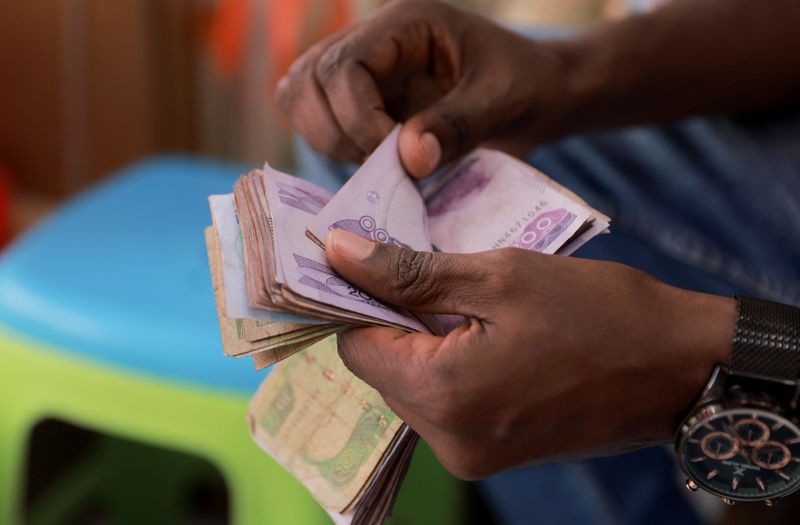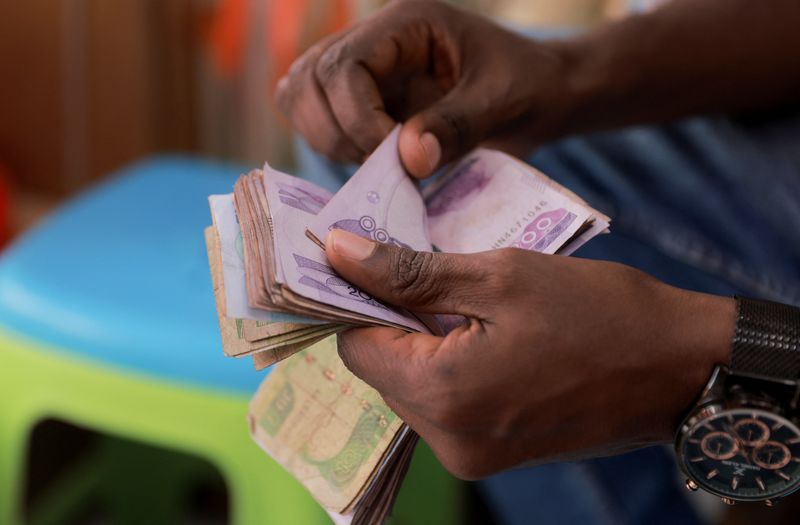
By Dawit Endeshaw
ADDIS ABABA (Reuters) -Ethiopia’s central bank on Monday removed restrictions on the foreign currency market, it said, a crucial step towards securing funding from the International Monetary Fund and making progress on a long-delayed debt overhaul.
The birr currency sank 30% against the dollar to 74.73 per dollar, the biggest commercial lender said, after the removal of restrictions. The currency was trading at 57.48 against the dollar on Friday.
Last December, the Horn-of-Africa nation which is struggling with high inflation and chronic foreign currency shortages, became the third economy on the continent in as many years to default on its debt.
It has been in talks with the IMF since last year to establish a new lending program, after the last fund-supported program agreed in 2019 was abandoned due to conflict in the northern region of Tigray that ended with a November 2022 peace deal.
“Banks are henceforth allowed to buy and sell foreign currencies from/to their clients and among themselves at freely
negotiated rates, and with the NBE (National Bank of Ethiopia) making only limited interventions,” the central bank said in a statement.
The reforms were initially announced by Prime Minister Abiy Ahmed late on Sunday.
As part of the reforms, Ethiopia will get $10.7 billion in external financing from its development partners, said Mamo Mihretu, the central bank governor, in a video released online.
“This support includes exceptional financing from the IMF, the World Bank, and Creditors,” he said.
“The IMF and World Bank are both providing exceptional and front-loaded funding support that will be among their highest such allocations in the African continent.”
There was no immediate comment from the IMF.

Africa’s second-most populous country requested a debt restructuring under the Group of 20’s Common Framework process in early 2021, but progress was slowed by the civil war in the northern Tigray region that lasted two years.
The government in Addis Ababa had already unveiled some economic reforms, which analysts say are linked to the negotiations for a new IMF reform program, including the adoption of an interest rate-based monetary policy earlier this month.
This post is originally published on INVESTING.




